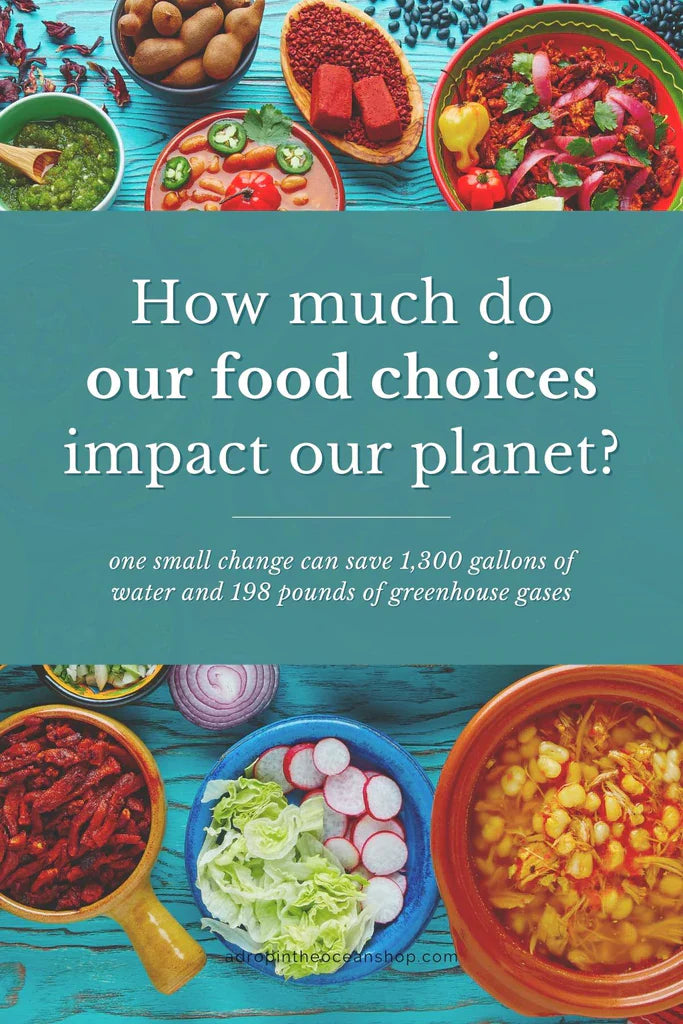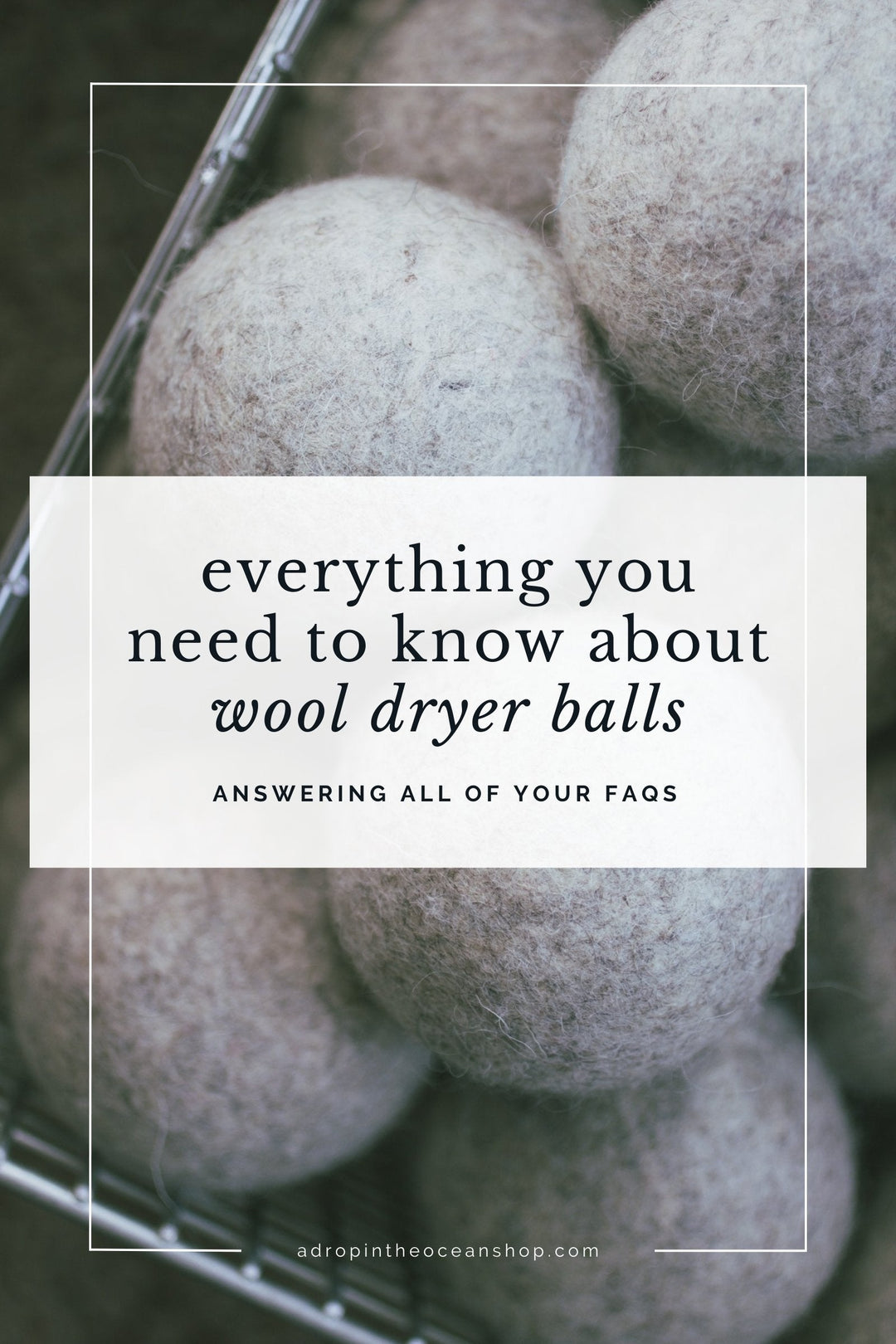What's the environmental impact of one pound of meat?

This post is unedited from how it first appeared in our weekly Make Waves Mondays email series on September 27, 2021.
Oh my GOODNESS, hello! It feels like it’s been an eternity since our last post and it feels so good to be back - and to be kicking things back off with another Small Change Big Impact.
Our Baja EcoWarrior Retreat was absolutely amazing. I feel gratitude all the way to my toes for all of the EcoWarriors who took a leap this year and joined us in our first-ever retreat, and to everyone who made this dream into a reality. A very special shout-out goes to our ocean conservation partner, Vermilion Sea Institute, for hosting us and sharing the magic of Baja with us, and to Erica of Yoga Wild for leading us in yoga practices each morning on the beach (and for teaching me how to paddleboard!).
I’m already looking forward to next year. Mark your calendars for September 8-13, 2022!

And now, let’s dive into this month’s Small Change Big Impact.
I haven’t been shy about the fact that I am not vegan or vegetarian. However, I do try hard to be mindful of my food choices and the impact they have on the planet. I don’t eat fish and I love expanding my Meatless Monday Pinterest board.
Food is deeply personal and cultural. Food is a powerful way to connect with others, to show our appreciation or care for someone else, or even to connect with ourselves.
Like any topic we’ve ever covered and will ever cover, I would never tell someone else how to live their life. That’s never my intention with these weekly emails and blogs. Instead, my intention is to empower each of us to make the best choices for ourselves and the planet each day.
And one of the ways we can do that is by being mindful of our food choices.
According to Project Drawdown, two of the top three solutions to fighting climate change fall under the category of Food, Agriculture and Land Use. The first solution is reducing food waste, the next is adopting plant-rich diets.
Globally, the average person consumes about 75 pounds of meat each year.
But when we look at America, we each consume about 181 pounds of meat every year. That’s about 3.5 pounds each week, or half a pound per day. As an American myself, those numbers don’t seem abnormal to me. I was raised in the Midwest on a steady diet of meat and potatoes...and about as much corn as we could get our hands on every summer.
And that’s why it takes intention to change these habits. They’re ingrained in our culture.
So rather than use this space to say we should all go vegan or we should all go vegetarian (YAY if you already are!!), what if instead we each ate one less pound of meat each week?

Image credit Eaters Collective via Unsplash.
Because let’s talk about the impact of animal products for a second…
Did you know that more than a quarter (about 27%) of the planet’s water use comes from our consumption of meat and animal products?
And did you know that land conversion for agriculture has historically been the greatest cause of greenhouse gas emissions, due to loss of biodiversity and biomass (aka the total mass of plant and animal material in a given area)? Combined with forestry, agriculture is responsible for 24% of global greenhouse gas emissions.
Plus, about 38% of the entire Earth’s surface is used for agriculture. About one third of that is cropland, the other two-thirds are used for grazing livestock. If cattle were their own country, they would have the third-highest greenhouse gas emissions of any nation.
Putting all these numbers together made me wanna run away, jump onto Pinterest, and find a million more Meatless Monday recipes right now.
But instead I decided to lean into my data nerd tendencies and made a chart showing the water, land, and greenhouse gas impacts of a few different foods. I couldn’t resist.
|
Water Use |
Land Use |
Greenhouse gas emissions, excluding methane |
|
|
Apples |
54 minutes (98 gal) |
21 m2 |
2 lb |
|
Beans^ |
3 minutes (6 gal) |
7 m2 |
0.7 lb |
|
Beef |
1,026 minutes (1,847 gal) |
164 m2 |
246 lb |
|
Cheese |
212 minutes (381 gal) |
40 m2 |
64 lb |
|
Chicken |
288 minutes (518 gal) |
7 m2 |
48 lb |
|
Egg^^ |
217 minutes (391 gal) |
6 m2 |
22 lb |
|
Rice |
166 minutes (299 gal) |
4 m2 |
10 lb |
|
Tomatoes |
14 minutes (25 gal) |
7 m2 |
10 lb |
* Water use data from waterfootprint.org, converted from liters per kilogram. Minutes of shower time based on a low-flow showerhead using 1.8 gallons of water per minute.
** Land use data from ourworldindata.org.
*** Greenhouse gas emissions data from ourworldindata.org, converted from kilograms of CO2-equivalent per kilogram of product.
^ Data for bean water use and greenhouse gas emissions could not be found in the same sources as the other food items. Data for water use from The U.S. Sustainability Alliance; greenhouse gas emissions data from BBC News.
^^ These calculations assume that 1 pound of eggs is approximately 9 individual eggs. The water use per egg is approximately 24 minutes of showering, or 43 gallons of water, and the greenhouse gas emissions are approximately 2.4 pounds of CO2e.
The thing that always strikes me is the huge difference between beef and chicken.
By just swapping one pound of beef for one pound of chicken, we can save 1,329 gallons of water and 198 pounds of greenhouse gas emissions. That’s insane to me. That’s like not driving 226 miles!
So, let’s dive a little deeper, shall we?
If we swap one pound of beef for one pound of chicken, each one of us can save the equivalent carbon emissions of driving 226 miles and as much water as showering for 12 hours and 20 minutes straight. Just ONE time.
Imagine if we did this every other week for a year. That’s like saving 5,869 miles - or taking a car off the road completely for a full six months. And it would save as much water as showering for 24 DAYS STRAIGHT - with a low-flow showerhead.

Image credit Mariana Medvede via Unsplash.
Now let’s say we swap that chicken for beans, just one time.
We’d save ANOTHER 512 gallons of water - the equivalent of showering 4 hours and 45 minutes - and another 47.3 pounds of greenhouse gases. That’s like not driving another 54 miles.
And if we swapped one pound of chicken for beans every other week for a year, it’d be like avoiding driving 1,402 miles and saving as much water as showering for more than 5 whole days.
Insanity.
Now just for funsies…
What if everyone reading this post swapped one pound of beef for beans?
We would save 3.2 MILLION gallons of water and 430,000 pounds of greenhouse gas emissions. That much water is like showering for nearly three and a half YEARS, non-stop, with a low-flow showerhead. And that many emissions are like taking 43 cars off the road completely for a whole year.
And that’s just from making the swap once. With just the people reading this post.
(We’re a relatively small group here - as I write this, there are 1733 EcoWarriors on this list.)
What if we all made that change once a week for a full year?
We would save 169.5 MILLION gallons of water and 22.6 MILLION pounds of greenhouse gas emissions. That’s as much water as showering for a full 179 years and taking 2,228 cars off the road for a full year.
This is what I love about this series. Swapping just one thing one time doesn’t always seem like much. But we’re not just one person. Community is everything. And when our little community does these small things, we add up. Our impact adds up. Our voices add up.
And that’s where the magic begins, my friend.
So, friend, if this isn’t already a habit for you, will you commit to this one small change with a big impact this week? Comment below and let me know if you’re in. Let’s hold each other accountable, and make some big waves for Mama Earth 💙
Sources + Additional Reading:
BBC News: Climate change food calculator
Food and Agriculture Organization of the United Nations: Land use in agriculture by the numbers
Foodprint.org: The Water Footprint of Food
Project Drawdown: Food, Agriculture, and Land Use
Project Drawdown: Plant-Rich Diets
US Sustainability Alliance: US Dry Beans Fact Sheets
Waste Free Kitchen Handbook
Related:
The Sustainability of Wine vs. Beer
What do expiration dates actually mean?









Leave a comment